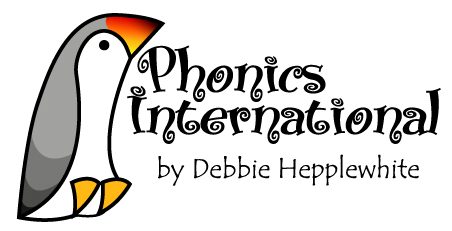All of the following resources are FREE to download:
These eBooks introduce 117 letters and letter groups which are code for all the smallest sounds of speech (the letter/s-sound correspondences of the English alphabetic code). They also introduce additional correspondences (such as ‘tt’ and ‘dd’) and common words with unusual spellings (such as ‘eir’ in ‘their’ and ‘eo’ in ‘people’) throughout the 200+ cumulative sentences and texts.
*****
‘Phonics and Talk Time’ books and the ‘Teeny Reading Seeds’ resources for ages 3 to 5
These resources are suitable for use in the home, and in nurseries and pre-schools, before using a full systematic synthetic phonics programme. They provide experience and exposure to alphabet letters linked to sounds and show how we can use reading, spelling and writing to communicate.
*****
The Phonics International online programme: Unit 1 (of 12 units) for ages 4+ to 5
Unit 1 provides all the resources (including decodable sentences and texts) to deliver teaching and learning of the following letter/sound correspondences:
s a t i p n c k -ck e h r
*****
Alphabetic Code Charts for all ages as required
This site provides a wide range of printable alphabetic code charts suitable for many users and uses.
*****
Alphabet and Handwriting Resources – print and fully joined from ages 4+ to adult as required
This site provides posters and tabletop alphabet resources for print and joined handwriting plus a video demonstrating fully joined handwriting tuition.
*****
Pre-recorded Webinar and Course Notes of Debbie’s approach to the teaching of reading, spelling and handwriting
“It was so wonderful to speak with you in person today after spending two days of really studying your work – mainly through your webinar.
Even though I have been fortunate enough to have been an assistant head in London and a leader of English in London and now reading in SVCPS, I have always been aware my lack of understanding in the area of phonics. I have watched excellent practitioners teach and I have tried to gain more of an understanding but have always failed. My school gave me the time to concentrate on the teaching of phonics and my deputy gave me the link to your webinar. It was inspiring to say the least. You managed to connect the dots of understanding in my mind to draw a complete picture of what teaching English looks like in its foundations and most importantly, why. You changed my mind about some things, e.g. handwriting and how it should be taught but also clarified other things. The resources that you have created are fit for purpose and have been created to enable each learner to be independent – which is something very close to my heart. I cannot thank you enough for providing this resource – for free – I will be recommending it to anyone who will listen.” – English Lead – UK
**Download course notes here:
Webinar Course Notes** Phonics specialist and programme author, Debbie Hepplewhite, packs a huge amount of information into this pre-recorded webinar ranging from the ‘bigger picture’ of the reading debate, to developments in the field of reading instruction, to the minutiae of her suggested phonics routines. Along the way, Debbie provides plenty of food for thought for the potential of rich content and practical activities for phonics provision – rooted in at least some ‘core’ resources belonging to children in a ‘tangible’ paper-based format. For a comprehensive ‘Home-Study’ online phonics training course, go to:
Phonics Training Online CourseFor links to our phonics programmes and other resources, go to:
SyntheticPhonics.comNo Nonsense Phonics – Management, Organisation and Practical Suggestions by Debbie Hepplewhite
Debbie provides bespoke online training (Zoom) for schools using any of her four ‘Systematic Synthetic Phonics’ programmes ‘validated’ by the Department for Education (DfE) in England and used in schools internationally. This video (Jan 2024) features pointers for management, organisation, differentiation and other practical tips for busy classroom teachers and teaching assistants. Although Debbie talks about the ‘No Nonsense Phonics’ programme, all the suggestions are the same for the ‘Phonics International’ programme. Phonics International Ltd provides outstanding ranges of ‘free resources’ via their websites. See this site for further information, free training and our ‘hard-copy’ range of resources including the ‘Phonics Reading Books’ series: https://phonicsintervention.org
